There are plenty of personal breathalyzer devices on the market today, but most people would rather take the risk of getting behind the wheel then actually purchase them. The reason? They tend to be big and bulky, require frequent calibration, and have mouthpieces on them that aren’t conducive for sharing.
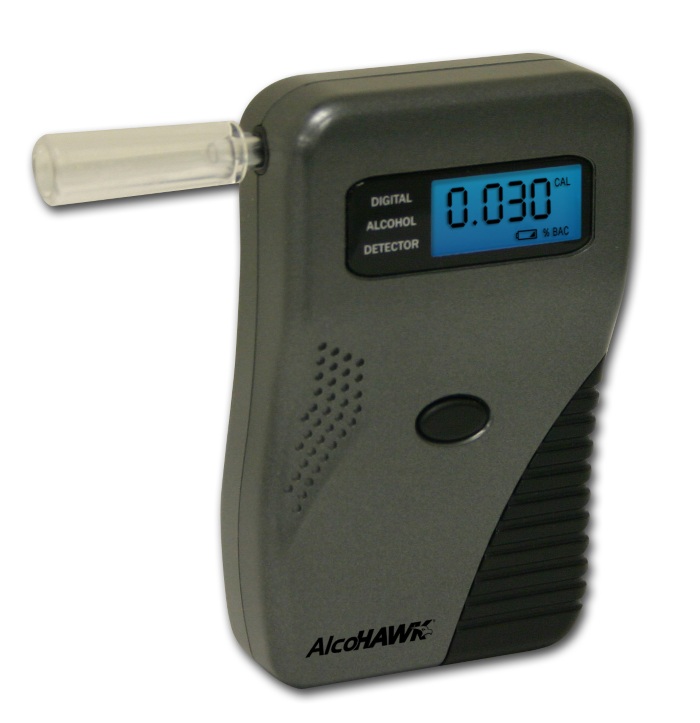
In an attempt to change this mistaken way of thinking, the folks at Edge Tech Labs are gearing up to bring their Kickstarter-funded new product, DrinkMate, to market.
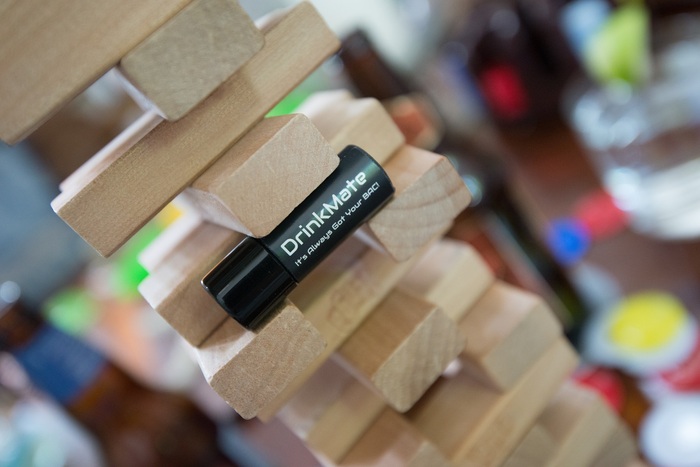
DrinkMate is the world’s smallest and lightest breathalyzer. It measures 1.8 inches long, 0.62 inches in diameter, and weighs just 0.2 ounces. The reason why it’s so small and tiny is because no battery is necessary — the device is powered via the micros USB port of one’s smartphone, and power consumption is negligible when in use.
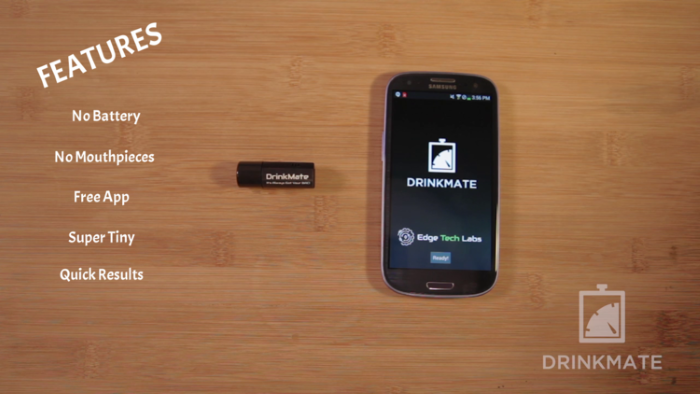
A bit more specifically, the range for DrinkMate goes from 20 mA for steady state to 80 mA during warm-up (about 7 seconds or so). When one considers that a Samsung Galaxy S4 battery's capacity is 2,200 mAh, you understand how this consumption can be considered insignificant for the short periods of time it’s in use.
In terms of actual operation, DrinkMate syncs up with one’s mobile device by way of its free app (Android only at the moment). After being plugged into the phone and opening the app, the DrinkMate needs just a few seconds to warm up and stabilize. Once it’s ready, the user blows in to the mouthpiece-free DrinkMate for four seconds (like whistling really, really hard), at which point his / her BAC level is displayed on the screen.
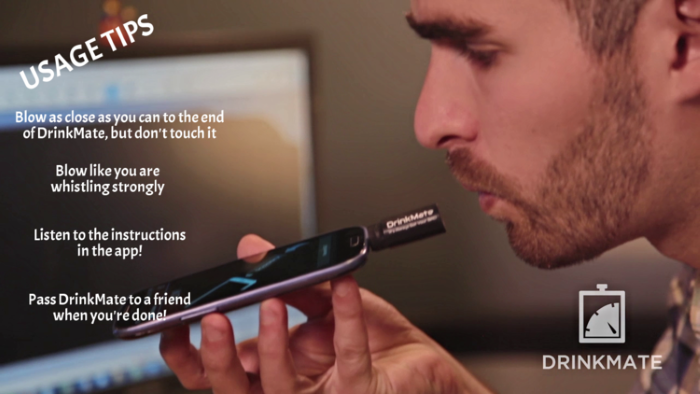
For those curious on how the device is able to detect an individual’s BAC, DrinkMate uses a low-cost semiconductor-based sensor. The inlet into which users blow is specially designed to slow airflow for correct measurement (this is actually a problem with many of the consumer-based breathalyzers on market today) and its outlets are positioned in such a way so that alcohol can clear the sensor area once the reading has been taken (less risk of residue being left behind).
If a friend wishes to test someone's BAC after a reading, the user needs to wait 10 seconds to allow all alcohol to leave or otherwise evaporate off the sensors. To ensure this rest period is met, there are two controls in place. For one, in order to do another reading, it is required that DrinkMate be unplugged and replugged again, which allows for a reiteration of all start-up checks on the app, and also ensures that all alcohol from the previous test has been cleared. Secondly, the app can actually recognize if DrinkMate has not yet “recovered” from its previous tests (that is, the alcohol has not fully evaporated from the sensor chamber). This is detected during its plug-in warm up and stabilization data tests. Should this be the case, it will let the user know that he / she needs to wait longer.
Worth noting about the device — it does not need to be recalibrated as often as others on the market. This is due to the fact that the group incorporated what they describe as a heavily researched and customized “age” factor into their BAC calculation algorithm. Basically, it uses data on the number of DrinkMate tests since purchased (and the amount of alcohol blown during each use) to alter the BAC results according to how “broken in” the user’s DrinkMate sensor is.
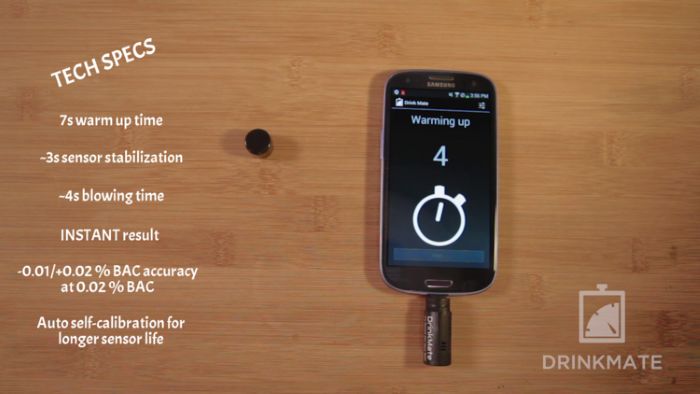
This slight adjusting is actually what current breathalyzers do when they get recalibrated—a professional will set a new “starting line” or finishing “baseline” based on the device’s altered sensor values. With this special DrinkMate algorithm, if you will, the system will recalibrate on its own, meaning the sensor itself never actually goes bad — it just becomes more broken in.
DrinkMate’s accuracy is rated at ±0.01% BAC at a BAC of 0.02% (maximum BAC is 0.20%). The device was validated using testing and calibration kits from Lifeloc Technologies, a leader in the industry.
While Edge Tech Labs’s Kickstarter campaign runs through September 24, the device is already well past its fundraising goal. If you’re interested in getting one for yourself or someone you know, a donation of $25 will secure you a DrinkMate from the first group being manufactured (target date December 1, 2014).
Story via Kickstarter
Advertisement
Learn more about Electronic Products Magazine





